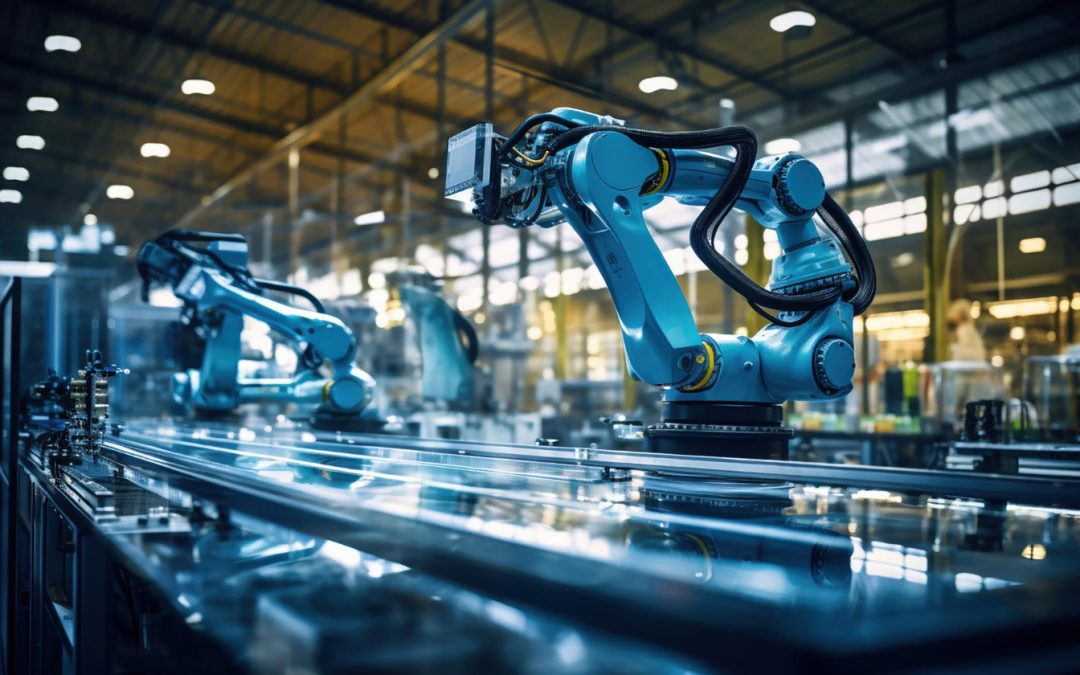Automation is not just a technological advancement; It is a transformative force that is reshaping the manufacturing landscape. Workflow efficacy to increase productivity are just two of the many benefits of automation in the manufacturing industry. In the rapidly changing modern world, industry automation is becoming an undisputed center of all processes in the manufacturing industry. Let’s look at 10 major benefits of automation in manufacturing industry.
Benefits of Industry Automation
In this post we are going to discuss the major benefits of automation in manufacturing industry and the importance of automation in manufacturing.
1. Increased Productivity

Automation in production will increase the young production capacity of everything, including the replacement of monopolized and repetitive activities by machines. Consulting company McKinsey says that automation of machines by implementing sensors can reduce repair services by 10-15% and, hence, increase performance. This data clearly shows the importance of industry automation.
Checkout: 7 Ways How Automation Increases Productivity in Industries
2. Enhanced Safety
Automation can significantly reduce accidents at work sites by providing automation in case of physical Labor. Instead of machines now performing dull, dirty or inhumane activities that are dangerous and physically draining, workers can work in better conditions where the chance of injury is reduced.
3. Improved Quality
In automated manufacturing the right kind of repetitiveness is guaranteed to reduce any human error. The automation achieved thorough adherence to the necessary standards and specifications paving the way for a uniformly high quality output that meets consumers’ expectations.
4. Cost Reduction
Cost Reduction is one the major benefits of industry automation. By investing in automation initially, perhaps, it seems more expensive, but the long-term cost savings, however, are impressive. Automation lowers labor costs, removes the factor of human manual inspection which is error-prone and also brings about material waste reduction, in turn giving significant cost savings over usually small amounts of time.
5. Enhanced Flexibility

Automation creates greater flexibility for manufacturers to meet the changing needs of end users. Thanks to the development and use of programmable systems as well as production robots, the production process can be changed and adapted at any time to meet different product specifications or changing production volumes.
6. 24/7 Operations
While this machine unlike man-workers who have breaks as well as periods of rest may operate nonstop, automatic system turns this to be able to produce even round-the-clock. This full on-flow state produces the highest performance from the resources and the major amount of product.
7. Scalability
Automation is an important factor that facilitates scalability as it enables manufacturers to easily and rapidly increase production when demand by end users increases. Automation does not scale production volumes, but it can provide you with scalable production volumes as business growth or product line expansion progresses.
8. Data-Driven Insights
Automation of manufacturing processes provides delayed data, which can be used to enhance the existing techniques in the future. By identifying the key factors influencing production flow and analyzing performance through automated systems manufacturers have the necessary data to make informed decisions and improve their processes.
9. Environmental Sustainability
Automated systems are also instrumental in addressing the issues of energy conservation and waste management through their energy-savings and waste-reduction abilities. Through efficient resource utilization and playing a part in IoT, industries end up having a low-impact on the environment and hence the environment is preserved.
10. Competitive Advantage
Through automation, manufacturers can maintain their strong presence in today’s global market. The application by companies of automation leads to the provision of products faster, at costs less, and with stronger quality. This is one of the major factors separating competitors and creating the impetus for business growth.
Conclusion

In other words, automation is influencing manufacturing via the leverage of its real merits that include higher productivity, better accident prevention, and capacity to transform production into a low-cost activity. Automation allows manufacturers to stay competitive, being able to adopt to market fluctuations, and defining the future of our industry not only efficient but more sustainable as well. By harnessing the myriad benefits of automation in manufacturing industry, manufacturers can unlock greater efficiency, quality, and competitiveness, paving the way for a brighter future in manufacturing.
